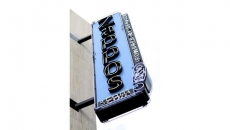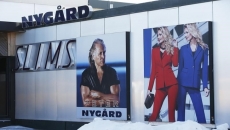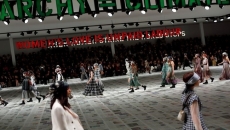After repeatedly being denied service by high-end salons because her hair was perceived as “too difficult” to style, Kanessa Alexander took an unusual step. She opened a shop of her own in a predominantly white Boston neighbourhood with four Black stylists serving all hair textures.
“I wanted to be someplace where we existed but were not represented,” the African American cosmetologist said of her decision five years ago to set up Perfect 10 in West Roxbury, near where she grew up. “So many salons were just seeing a Black person.”
As a racial reckoning unfolds around the globe, Alexander and more than a dozen other people of colour in the beauty industry trace such bias and discrimination in mostly white salons to the sidelining of formal education on tightly curled, coiled or kinky hair.
The lack of experience, or interest, is particularly acute when it comes to hair worn naturally, a growing trend among African American women who want to celebrate both personal identity and Black culture.
“They didn’t learn Black hair. They’ve been taught Black hair is difficult,” Alexander said. “Nobody will come in here and hear that their hair is too difficult.”
About 25 miles from Alexander’s salon, in mostly white Westborough, Massachusetts, Damalyn Matthews knows the struggle firsthand. Matthews, who is white and Native American, has three children with her African American husband. She recently sent her two oldest, ages 7 and 5, to her regular salon, a Supercuts, with her 21-year-old niece, who is white.
A white stylist grumbled that the children’s race should have been disclosed when the appointments were made because: “We don’t cut Black people’s hair here,” Matthews said. While service wasn’t denied, the remark and others like it made by the stylist led to her termination and an apology from the salon.
Such stories are not uncommon, from outright refusals to botched treatments and cuts by stylists who don’t know what they’re doing but are reluctant to say so, fearing legal retribution or out of embarrassment or guilt.
Some cosmetology schools include educators with experience on a range of textured hair, but students said highly textured hair is often barely mentioned during training. Mannequins of colour are not routine.
Kayla Naclerio, 23, of Albuquerque, New Mexico, is enrolled in beauty school near her home. She plans to graduate in September.
“They don’t really tend to teach ethnic hair,” said Naclerio, who is white. “I would like to learn how to do Black hair. I don’t really see why there seems to be such a big lack of education on Black hair."
Naclerio found her own mannequin of colour to supplement her education.
Serving Black people in the beauty business has become increasingly lucrative. In 2018, the Black hair care industry raked in an estimated $2.51 billion as Black consumers have progressively made the switch from general products to those that cater specifically to them. Black women spend nine times more on ethnic-targeted beauty and grooming products than the average for all consumers in the hair sector, according to Nielsen.
Kari Williams in Los Angeles has a seat on the California Board of Barbering and Cosmetology, which administers exams and licenses in the state. She said most beauty schools focus on salon safety and sanitation, and the use of heat styling tools and chemicals for straightening, coloring, perming and relaxing.
“When you have a stylist going through 1,100 hours of training, when it comes to Black hair, they’re learning how to destroy Black hair,” Williams said.
In Fort Lauderdale, Florida, 30-year-old Britany Bain graduated in 2014 from Aveda Institute South Florida, one of more than 60 independently owned and run Aveda schools in the U.S. considered among the top in the industry.
“The education for textured hair was just completely zero,” said Bain, who is Black. “Whenever we touched on textured hair as a topic, it was just like how to straighten it. I had come from the natural hair world. It got to the point where I was saying, `No, we need to use this, or can I bring this in?'”
Kevin Molin, vice-president of Aveda Global Education for Aveda Corp., said the company released educational curricula that focused on the care and styling of curly and coily hair in 2012, and will be expanding that effort next month “to create an Aveda experience that is fully inclusive.”
Students at Paul Mitchell Schools, another top name in cosmetology education, have made similar complaints. The schools, most also independently owned, recently announced initiatives aimed at including “all hair types as standard learning, not specialized.”
Paul Mitchell brand ambassador John Mosley, a Black barber in Dallas, said the company “is definitely making rapid changes to be able to instruct on more” kinds of hair.






